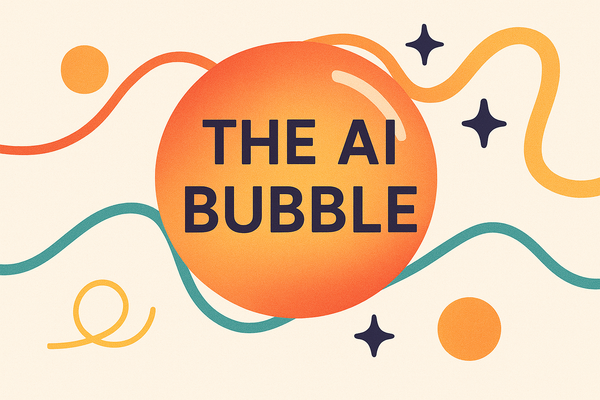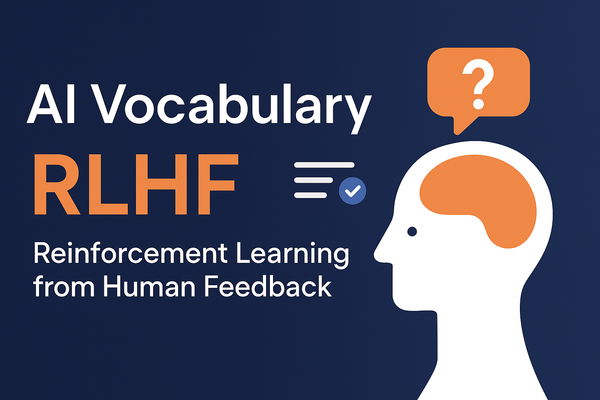From generative to agentic: When AI stops answering and starts acting

Before we begin
We’ve all seen what generative AI can do, yes, we should have by now. Writing blog posts, creating images, summarizing emails, and even coding (might not be vibe coding just yet). It sometimes can feel like magic. But what’s coming next is even more transformative or even concerning if that's your stance: AI that doesn’t just create, it decides, plans, and acts.
That shift is the difference between Generative AI and what people are calling Agentic AI. Let's see if the names will stick.
And if you consider how we use Google Search, ChatGPT, or even workplace tools today, this change will have an opportunity to redefine all of them. But let's not dive into that just yet.
So what is generative AI?
Alright, let’s start with what we (in this case, I) already know. Generative AI is like your ultra-talented assistant who waits for instructions. You ask it to do one thing, like write a paragraph or generate an image, and it does it. Perfectly (well, mostly).
It's built on large language models (LLMs) like GPT or Claude, trained on tons of data. But here’s the thing—it’s reactive. You give it a command or a well prompt, and it gives you a response. Done. No memory, no goal-setting, no initiative.
Think of:
- ChatGPT writing marketing copy
- Midjourney is creating a cool illustration
- Copilot is writing a function in your code
It's powerful, yes. But you’re still doing almost all the thinking or the ideating phase.
Enter: Agentic AI
Now imagine if your personal AI assistant could: (1) decide what to do, (2) break it into steps, (3) use tools, and (4) adapt if things go sideways. That’s what Agentic AI brings to the table, as I understand it. This is AI with goals, memory, reasoning, and even the ability to say, “That didn’t work, let me try something else.”
Instead of asking, “What should I write?”, it asks, “What is the user trying to achieve, and how can I get there?”. So it’s not just helping you write an email; it’s checking your calendar, reading the last thread, drafting a response, sending it, and following up if no one replies.
Truth be told, my own lived experience with this type of AI is almost zero, and I derive mostly from articles and enthusiastic YouTubers.
Highly recommend giving Martin Keen a watch if it's the first time you are hearing of it:
A quick reality check: What’s the difference?
| Aspect | Generative AI | Agentic AI |
|---|---|---|
| How it works | Responds to one-off prompts | Sets goals, plans actions, adapts |
| Memory | Short-lived (unless built-in) | Persistent, learns over time |
| Role of user | Directs the process | Describes goal, then monitors |
| Autonomy | Low – waits for input | High – acts independently |
| Time horizon | One-off tasks | Ongoing processes |
| Tool use | Limited or scripted | Dynamic – uses APIs, software, tools |
How does Agentic AI actually work?
Behind the scenes, these AI agents are combining several components, which will be listed below. Don't ask for details, I'll probably not be able to answer this without googling them myself.
- LLMs for understanding language and making decisions
- Planners who break complex goals into steps
- Executors that perform those steps, like calling APIs or running code
- Memory modules that remember what happened before
- Feedback loops that check if the result was successful, and try again if not
So, from my understanding, think of this as a framework like AutoGPT, LangGraph, or CrewAI; they're early building blocks for this shift.
Different real-world use cases (This is Already Happening)
Generative Search (like what Google is becoming): Instead of giving you links, an agent reads them, compares answers, and gives you conclusions—maybe even files a return request if you're unhappy with a product. Automation in work: AI agents that read your Slack, update your CRM, follow up with leads, and summarize meetings. Code: Agents that don’t just write code, they debug it, deploy it, and monitor performance. Support: Not only answering questions. Could also resolve tickets, issue refunds, or update records autonomously.
Why this shift matters (A personal take)
Right now, most people use AI like a glorified autocomplete. Not giving it much thought. But what happens when we stop prompting and start partnering?
Imagine describing your outcome, not your instructions:
“I need a product launch campaign that targets developers and designers.”
Boom. Your agent researches competitors, writes emails, builds a landing page, and sets up analytics.
From my understanding this that’s not science fiction. That’s what agentic AI unlocks. It changes how we think about productivity, responsibility, and even trust. When the AI is doing things, especially behind the scenes, you need to trust the process. Not just the output.
Let’s be real. Agentic AI comes with some big questions:
- Can you trust it? What if it makes a wrong decision with real consequences?
- Can you audit it? Will it explain why it did something?
- What happens when it fails? Who’s responsible?
Just like you wouldn’t hire an employee without oversight, you might need systems to supervise your AI guardrails, logs, and ethical frameworks, where we still are lightyears behind.




